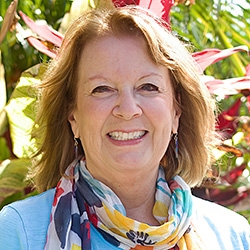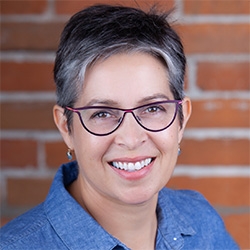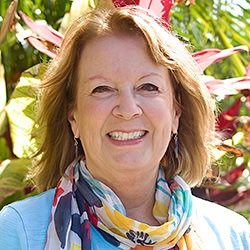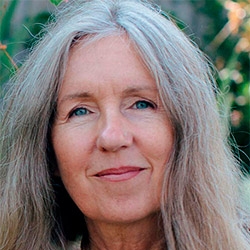

Search Results: ally
-
Much like other asymmetric relationships (such as therapist and client), there are complications related to power dynamics that can arise with any NVC trainer having sex with a participant. For one, there's (counter)transference. And there's potential for things that may not move outside this asymmetric relationship -- such as projections where the participant, and/or the trainer, is guided by un-healed pain of their "inner child".
-
Learn quick self-empathy techniques to notice your sensations, feelings, and needs.
-
Falling in love is quite an experience, especially when it comes to that moment of saying 'I love you'. So what happens once you're in a relationship but still need to express the way you feel? Sometimes people feel like just saying 'I love you' is too impersonal or unspecific. So in this Life Hack, we give you some tips on how Nonviolent Communication can help set the mood with your loved ones.
-
-
Our brains often quickly categorizes things as good, bad, right, or wrong and then determines who’s to blame or praise. Maybe this supports the illusion of order and predictability, thus provides a false sense of safety and reassurance. But its less effective in truly meeting our needs. By practicing "Living in the Observation," we can focus on reality, avoid unhelpful rumination, and find peace and empowerment in everyday life.
-
Whether privileged or not, its not easy to see the humanity of others in different social locations, especially if their actions have unwanted impacts and have left behind our humanity. Aiming for “both sides hearing each other” empathically, and to focus on effect rather than intent when we have more privilege, may theoretically lead to liberation. Yet, in practice it can reinforce rather than transcend power differences -- unless there's specific ways to focus attention and choice. Here, its important to transform expectations into working with willingness, and within our own terms and timetable.
-
- Discover what is yours to do in response to our global crises
- Weave nonviolence more deeply into how you live and lead
- Receive ongoing support in how to be effective and alive while pursuing your highest goals
- Increase your capacity to face and mourn current reality as a source of greater choice and energy
- Be a part of transforming the legacy of scarcity, separation, and powerlessness into a livable future
-
- Gain a deeper understanding of trauma through the lens of NVC
- Learn how to connect with ALL needs, even when we’ve been taught to suppress some of them
- Grow capacity to creatively move towards our deepest longings interdependently
- Discover how you can call people back to life when they are in the thick of patterned behavior
-
Kelly Bryson explores courageous honesty and how truth shared openly deepens connection.
-
The Compass – Arnina Kashtan's in-depth transformational process – is specifically designed to support you in reliably deepening your understanding of your own and others' conditioning, and finding ways to reclaim your full connection with yourself.
-
The Compass – Arnina Kashtan's in-depth transformational process – is specifically designed to support you in reliably deepening your understanding of your own and others' conditioning, and finding ways to reclaim your full connection with yourself.
-
How do you repair a relationship when your words or actions unintentionally impact another in a negative way? And what keeps you from apologizing? Join Lore to explore – and answer – these questions and more!
-
Recently, I have been pondering anger, how I express it and the jackal story I tell myself about it. Marshall Rosenberg taught that anger is a natural emotion that is based on a judgment of someone else or myself. I agree with this, so I have been doing some “enemy images” and self-empathy work (and praying for those who are most likely to be the recipients of my anger). My goal was to clear my judgments and take responsibility for my “stuff.” It has helped a lot, and yet I still feel a general anger in me that is not directly related to anyone or any specific situation.
-
In this NVC Life Hack, we look at those circumstances when we're saying yes ... but only kinda! Because we're still actually saying no. Shantigarbha and Gesine look at the needs that aren't being met.
-
-
Greetings dear readers of the Growing Roots Newsletter! Mary Mackenzie invited me to be a guest writer for this issue to which I happily agreed. She also shared that her messages are typically more personal in nature, something I always appreciate in a newsletter. The challenge for me then is to...
-
Empathy alone can be unreliable in guiding compassionate action. As seen in historical events, military training, personal anecdotes, and scientific experiments, empathy alone may not prevent people from harming others. A sense of duty or obedience, often instilled through fear of punishment and shame, might inhibit empathic action. The antidote may be to fostering empathy without resorting to control, shame, or punishment.
-
Welcome to June. It’s the beginning of summer in my area of the world and I usually find myself moving at a slower pace; spending more time outdoors and with friends, more time reading and gardening. I really enjoy the beginning of summer especially because the sun brings just enough heat to feel good, but not so hot to be uncomfortable.
-
Getting "feel good" empathy can become an addiction. Even to the point of seeing people who don't offer empathy as "not being NVC". Rachelle urges us to notice how this view of NVC can be seductive, and even dangerous. In this article, she explains how we can expand our compassionate awareness when we go beyond equating NVC with harmony and empathy. She asks us to become more open to noticing others' experiences even if it challenges our personal and collective belief systems -- and especially when it upsets us to consider it.
-
If we are to transform the existing social order, and shift to a mode of liberation for all, we'll need to look at our own participation in it. This includes how much we are able to focus on keeping our hearts open; speak to impact without attributing intention; and retain a humility that includes our systemic context. Read on for "how to" when we are in a position of less power.

Quick Links
Subscription Preferences
Stay In Touch!
Looking for ways to keep up with NVC Academy news, get special offers, free resources, or words of inspiration? Here are five ways to stay engaged:


















